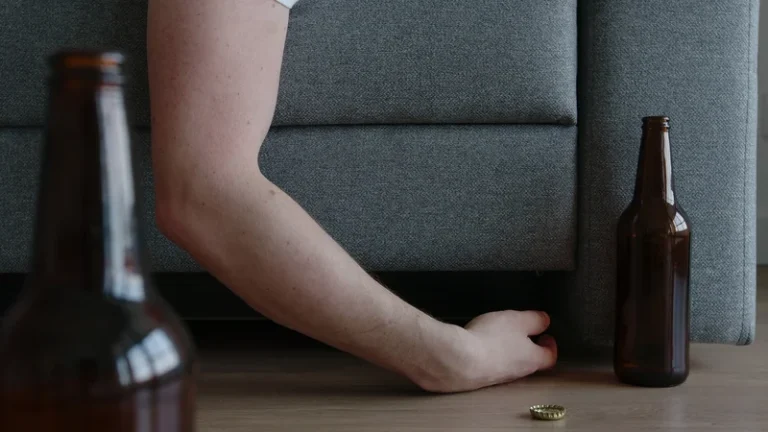
Talking to your recovery coach, sponsor, therapist, loved ones, or anyone else in your support system will help you move past the slip. This may be hard, especially if you have feelings of remorse and guilt. However, these people want you to succeed, and they will help you avoid slips in the future. Express your feelings and find the resolve to heroin addiction return to sobriety.
Challenges in Alcohol and Drug Rehab
It should not be used to replace the suggestions of your personal physician or other health care professionals. Social stigma has blocked the road to understanding of alcoholism more than with any other disease. Society has long viewed the affliction as a psychological problem alone–the sign of a ravaged soul devoid of discipline or morality. Physicians are inclined to ignore its symptoms and victims deny its existence.

General Health
The danger of a slip, after all, is that it easily can snowball into relapse. Based on the information above, we can https://ecosoberhouse.com/ conclude that addiction and dependence are not the same, although they are often confused or used interchangeably. While both involve the use of substances and can coexist, they refer to different aspects of substance use. All information provided in featured rehab listings is verified by the facility officials. The details are kept up to date to help people with addiction treatment needs get the most full and precise facts about the rehabilitation facility.
What Is Substance Abuse?
Heavy drinking also can cause liver and other health problems or lead to a more serious alcohol disorder.If you’re a man and you drink more than four drinks on any day or more than 14 in a week, you’re drinking too much. For women, heavy drinking means more than three drinks in one day or more than seven drinks a week. It’s common for a person to relapse, but relapse doesn’t mean that treatment doesn’t work. As with other chronic health conditions, treatment should be ongoing and should be adjusted based on how the patient responds. Treatment plans need to be reviewed often and modified to fit the patient’s changing needs. A majority of people who seek treatment for an SUD are struggling with a dependence on more than one type of substance.

There are also drugs that are used for the fun of it, or to enhance the good experience. These kinds of drugs have many prohibitions and regulations, because they may prove unpleasant when abused. The more serious effects of drug abuse, again, in terms of its physical effects on our bodies, are overdoses, violent or accidental death, organ failures due to accumulated toxicity, and getting a disease, like HIV, while addicted. Drug abuse also puts a person at risk for being exposed to infectious diseases and a host of other health problems. Even occasional substance abuse can put a person at risk for overdose. Often, the terms drug abuse and substance abuse are used interchangeably.

Table 2.

Some addicts see them as the same thing, but really it depends an individuals unique experiences with addiction. However, Most addiction professionals distinguish between slip and relapse by looking at the addict’s intention. Dependence is a common and natural outcome of using certain drugs over time, but it is important to distinguish it from addiction. While nearly everyone who uses opioids for an extended period will develop physical dependence, only around 3% to 19% of patients will develop an addiction. Dependence reflects the body’s normal adjustment to the consistent presence of a drug, but users don’t engage in any changed thoughts or behaviors.
- A person with an addiction will often pursue their toxic habits despite putting themselves or others in harm’s way.
- The friend notices her struggling with alcohol, and calls the woman’s family.
- However, further work is needed to determine if withdrawal occurs for hallucinogens and inhalants.
- If you think you or someone close to you is experiencing the aforementioned problems, do not hesitate to get help.
It’s crucial to differentiate between addiction and physical dependence to avoid real-life severe consequences. They make you feel more energetic and confident, but they can damage the liver and heart. They can also cause loss of memory and concentration, and bring an increased risk of mental health issues. Though difference between drugs and alcohol the process of long-term addiction rehabilitation may be life-long and there can be significant challenges an individual may have to overcome while recovering from addiction; recovery is possible.
Understanding Drug Use and Addiction DrugFacts
Withdrawal describes a range of physical symptoms when the body is not receiving the amount of drugs or alcohol it has become dependent on. Withdrawal can happen in a wide variety of timeframes depending on the substance being chronically used. An interesting independent factor that influences tolerance is familiarity with the location of the drug or alcohol use. This occurs as “standard” amounts of the substance may vary due to different perceptions, recipes, and the tolerance levels of people in that location. For example, if someone drinks their usual drink order in a new location, they may feel the effects of alcohol quicker than they might at home. A tolerance to drugs and alcohol is created when more of the substance is needed to experience the same effects.
- These drugs are not all in the same category, but they share some similar effects and dangers, including long-term harmful effects.
- The similarities in stigmatisation are perhaps more striking than the differences.
- I was so not an alcoholic that I didn’t even have to try to not drink alcohol.
- This means that harm and impairment still occur, just without as much awareness.
- It occurs when you use alcohol, prescription medicine, and other legal and illegal substances too much or in the wrong way.
These brain adaptations often lead to the person becoming less and less able to derive pleasure from other things they once enjoyed, like food, sex, or social activities. People with mental health disorders are more likely to develop an SUD than the general population. Addiction is a chronic condition, and recovery is a lifelong process.
